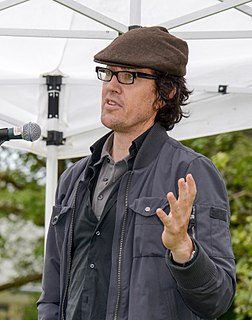A Quote by David Ebershoff
'The Danish Girl' was published in 2000. Then it, too, would disappear, as most books do. It fell out of print almost everywhere. I wrote other books and, as an editor, worked on dozens more. Yet always, Lili stayed with me.
Related Quotes
I didn't think [Ella Enchanted] would get published. Everything I'd written till then had been rejected. If it was published, I thought it might sell a few thousand copies and go out of print. I thought if I was lucky I could write more books and get them published, too. I still pinch myself over the way things have worked out.
I work just as much as I always worked. And I can't explain the fact that there have been a series of books coming rather regularly out of me. I work most days and if you work most days and you get at least a page done a day, then at the end of the year you have 365. So the pages accumulate and then I publish the books.
I wish that the adults who are 'in power' cared more about what their children read. Books are incredibly powerful when we are young - the books I read as a child have stayed with me my entire life - and yet, the people who write about books, for the most part, completely ignore children's literature.





































